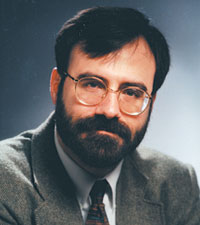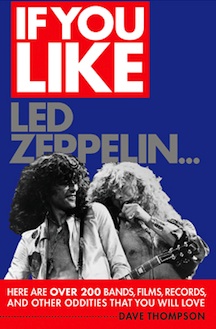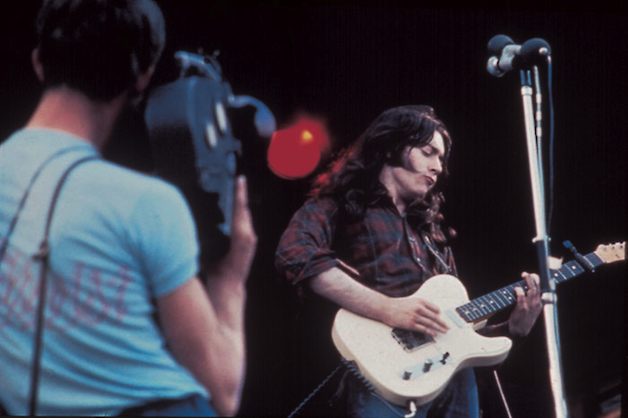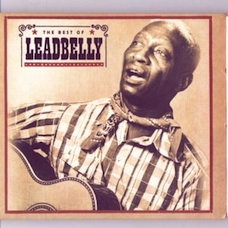May 05 2013
Rory Gallagher and the Continental Op

Wesley Callihan, author and presenter of the popular Old Western Culture video series, recently gave a lecture at the New Saint Andrews College in Moscow, Idaho. The subject of the lecture was, in part, the connections between Dashiell Hammett’s character the Continental Op, and such illustrious luminaries as Akira Kurosawa, Sergio Leone, and Blues and Rock guitarist, Rory Gallagher. The exact title of the lecture is: The Connections Between the Pinkerton Detective Agency, the Silver Valley of North Idaho, Dashiell Hammett (Author of the Maltese Falcon and the Thin Man Detective Novels), Clint Eastwood’s Spaghetti Westerns, and Rock Guitarist Rory Gallagher. Rory’s inclusion in the mix was rather timely considering the recent release of the 10-inch EP, “Continental Op,” and fortuitous, since Callihan had never even heard of the Irish legend until just a few short years ago.
Unfortunately I never even heard about Rory Gallagher until about five years ago or so. Growing up in Idaho I wouldn’t have had much of a chance to see him anyway. But I’ve been a life-long fan of the old blues greats – Buddy Guy, Muddy Waters, Son House, etc. So when I finally rectified my erroneous ways and started listening to Rory, I did so with a vengeance, and have all his music (still missing the San Francisco recordings but not for long). I’ve got every biography about him, I think, and have studied his life and music pretty thoroughly, and my son, a 20-year old blues guitarist with a little 3-piece band that plays in local coffee houses, loves Rory too, and plays a couple of his pieces in his sets. — Wesley Callihan
The lecture at New Saint Andrews College was videotaped by Roman Roads Media and uploaded to Vimeo. It is interspersed with video clips of Rory playing relevant songs such as “Continental Op” and “Public Enemy,” but the stuff about Rory is towards the end of the lecture. You can watch the full lecture below or skip to the main Rory bit at around the 40:40 mark. I’ve also included the text of the Rory related part of the lecture courtesy of Mr. Callihan.
The Connections Between the Pinkerton Detective Agency, the Silver Valley of North Idaho, Dashiell Hammett (Author of the Maltese Falcon and the Thin Man Detective Novels), Clint Eastwood’s Spaghetti Westerns, and Rock Guitarist Rory Gallagher. – Wesley Callihan

In 1972, Melody Maker, the world’s oldest music magazine and one of the leading critical journals of rock in the late 60’s through the early 80’s until it shifted its focus to pop, named a 25 year old guitarist from Cork, Ireland, its International Top Musician of the Year, ahead of such guitarists as Eric Clapton, Jeff Beck, and Jimmy Page. This same guitarist was asked in the early 70’s to audition for both The Rolling Stones and Deep Purple, bands at the height of their careers, but he turned them both down. He just wasn’t that interested. Guitarists like Slash of Guns n’ Roses, Brian May of Queen, Van Morrison, Eric Clapton, Johnny Marr of the The Smiths, Gary Moore and Phil Lynott of Thin Lizzy, Muddy Waters, Albert King, and countless others have praised this Irish guitarist for the influence he had on them, for the integrity he showed in a business where most musicians compromise in some way or another the gifts they have, for his love of the old American blues and Irish folk music and his ability to translate it all into blues rock, and for his brilliant guitar work.

Rory Gallagher was born and baptized in Donegal and raised in Cork, showed very early talent on the guitar, began playing professionally in Irish showbands, and then in his late teens started his own three-piece band called Taste around 1966. Their popularity grew in Ireland and then on the continent, to the extent that Taste toured with and opened for Cream, including their farewell concert at the Albert Hall in 1968. Taste toured with and opened for some of the great power groups of the late 60s and was a spectacular success at the 1970 Isle of Wight festival, playing in front of 150,000 people, on a bill that included Jimi Hendrix, The Doors, The Who, Chicago, Procol Harum, Jethro Tull, and over a dozen more. By the early 70s, Taste had broken up and Rory Gallagher formed his own trio, which, with minor personnel changes on drums, lasted over 20 years, producing 12 studio albums, 6 live albums and a number of other recordings in compilations.
He traveled with and sometimes opened for, an other times was opened by, some of the greatest groups of the 70s and 80s, and personally knew most any name you can think of from those decades. He never became a superstar like many of the guitarists he influenced and was easily the equal of, because, well, perhaps because he was Irish. He is often called the last of the independents. He wanted to write and play music the way he wanted to write and play music, he was extremely picky about the studio recordings he made, he was, like many musicians, at his best not in those studio recordings but on stage because he loved pleasing people with his music and fed off the energy of the crowd, but in a very down-to-earth way. He almost always wore jeans and plaid shirts and work boots, or something like it. He had a home in Cork where his mother lived and would visit her several times a year and always on Christmas holidays even though he was touring the world all year and had a home in London too. He never had a serious relationship with a woman, never married, never messed around, didn’t do drugs, for most of his life didn’t drink heavily (though being Irish, he loved his beer) always kept his humility and would stop to autograph a fan’s arm on the street and chat with strangers in music stores. He was rather lonely later as he moved into his forties but had a few good friends – music was his life. Unfortunately, his life was cut short in 1995 when a botched liver transplant resulted in his death in a London hospital at the age of 47. He is buried outside of Cork.

Not having much of a social life outside touring and recording he spent a lot of time in his apartment in London writing songs, but when he wasn’t doing that, or when he had free time on tour or during recording sessions, he loved to read. There are pictures of his apartment in London that show shelves covered with books on music, mostly the history of the blues, and the rest seem to run largely to detective novels. That was his favorite recreational reading, and his favorite detective novels were Dashiell Hammett’s Continental Op stories. Perhaps Rory Gallagher was drawn to another character who was essentially alone, or who had to maintain a certain emotional distance from most people in order to do what he had to do the way he had to do it. Or perhaps he just plain liked the stories. He loved detective stories so much that several songs on his many albums take the life of the detective or spy or even the crook being chased by the spy as their theme. You’ve heard small portions of several of them earlier in this talk. One is called Secret Agent, from the 1976 album Calling Card. It’s in the voice of a man whose jealous girlfriend has a detective following him, but the narrator is giving him the slip:
My baby`s got a secret agent, / To watch me like a hawk, / He knows each time I leave my house,
He knows each time I move around. / I`ll make that man / Turn in his badge in the morning, / I`ll slip around him, I`m too quick to catch, / No jealous woman is gonna keep tabs on me.
Another song, Public Enemy number 1, from the 1979 album Top Priority, is in the voice of a gangster talking to his girl, the driver of his getaway car:
There aint’ no doubt about it, She looks like a gangster’s moll / She’s the driver of the getaway car / of Public enemy number 1. / She’s fact and she’s fiction / All wrapped up into one / Sound, lights and vision / Street car collisions and all / We got the G-men on a mission / They can’t catch up at all / you got to keep your eyes peeled / Stay alert at the wheel tonight / Keep the key in the ignition / We won’t get no remission this time / Won’t you have that motor twitchin’ / When I come running by.
The title of still another, Philby, also from Top Priority, comes from a real-life spy named Kim Philby who served as a double agent for Britain in the mid 20th century but defected to the Soviet Union, his sympathies having always been with the communists. Here Gallagher compares his life on the road with that of a spy in a foreign country.
Now ain’t it strange that I feel like Philby / There’s a stranger in my soul / I’m lost in transit in a lonesome city / I can’t come in from the cold. / I’m deep in action on a secret mission / Contact’s broken down / Time drags by, I’m above suspicion / There’s a voice on the telephone. / Well it sure is dark in this clockwork city / Contact’s never gonna show / I’ve got a code which can’t be broken / My eyes never seem to close.
And of course, one from the 1988 album Defender – you heard this at the beginning of this talk – is even titled Continental Op. The lyrics are from the perspective of the Op, who of course works in San Francisco:
There’s a body in the bay / The cops are taking it away / They said this case was closed / It only shows you that never know / So who they gonna get when the troubles got to stop / Here’s my card I’m the Continental Op. / I saw you leavin’ town / I’m gonna have to track you down / You slipped through the web / And you might have dodged the Feds / But who they gonna get when you’ve outfoxed the cops / Here’s my number I’m the Continental Op. / Call the agency, we never close / First consultation is free / Check my reputation, check my pose / But first check my fee / There’s a menace on the streets / Offering infants sweets / Don’t give this man a ride / Lock your car from the inside /
He’s suspect No. 1 / But I guess his race is run / He left a set of prints / He’s not as smart as he thinks /
‘Cause who they gonna get / When the trouble’s gotta stop / Here’s my card / I’m the Continental Op.
Let’s give Rory one more listen
I want to thank Roman Roads Media for handling the audio/visuals today and for filming this. Thank you all for your time today; it’s been a pleasure to be here!
(end of lecture)
Thanks once again to Wesley Callihan at Schola Tutorials for allowing me to post his recent lecture at New Saint Andrews College.
Share on Facebook




